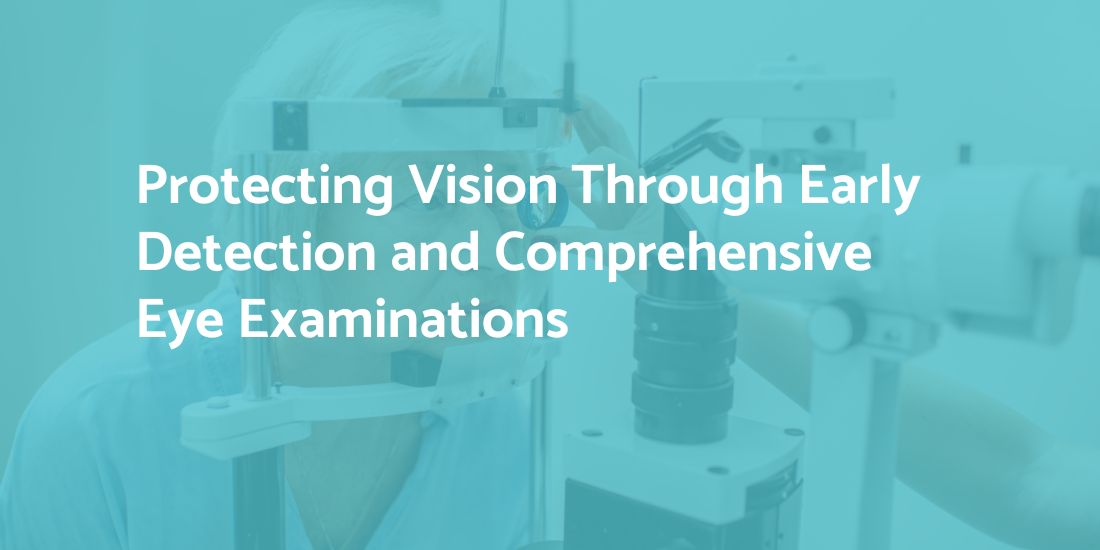Our eyes play a crucial role in our daily lives, yet many people overlook the importance of regular eye exams. Vision changes often develop gradually, making it easy to ignore subtle symptoms. However, conditions such as glaucoma and cataracts can progress without noticeable warning signs, leading to permanent sight loss if left untreated. Comprehensive eye examinations not only assess vision clarity but also serve as essential health checks, helping to detect underlying eye diseases at an early stage.
Understanding Common Eye Conditions
One of the most effective ways to protect vision is to understand common eye conditions and how they develop.
- Glaucoma – A condition caused by increased pressure within the eye, leading to optic nerve damage. If untreated, glaucoma can result in irreversible vision loss.
- Cataracts – A gradual clouding of the eye’s natural lens that causes blurred or distorted vision, often affecting both eyes over time.
- Age-Related Macular Degeneration (AMD) – A progressive condition that impacts central vision, making everyday tasks such as reading and recognising faces more difficult.
While some changes in vision are a natural part of ageing, regular eye examinations can detect these conditions early, allowing for timely intervention and improved treatment outcomes.
Why Regular Eye Exams Are Essential
Eye tests do more than determine whether you need glasses. They are a vital step in safeguarding long-term eye health.
- Early Detection of Eye Diseases – Many eye conditions develop silently, without causing immediate symptoms. Regular examinations help identify issues such as glaucoma and cataracts in their earliest stages, preventing irreversible damage.
- Monitoring Vision Changes – Our eyesight naturally evolves over time, but sudden changes could indicate underlying health concerns. Routine eye tests ensure that prescriptions are up to date and that any emerging problems are promptly addressed.
- A Reflection of Overall Health – The eyes can provide insights into general health conditions such as diabetes, high blood pressure, and cholesterol levels. Through a detailed retinal examination, an ophthalmologist can detect early signs of these issues.
- Preventative Eye Care – Addressing minor vision problems before they worsen can help prevent eye strain, headaches, and discomfort. Prevention is always better than cure when it comes to eye health.
What to Expect During an Eye Examination
A comprehensive eye test involves several assessments to check vision quality and eye health. Some of the key tests include:
- Visual Acuity Test – Measures how clearly each eye sees using a reading chart.
- Eye Pressure Test (IOP) – Assesses intraocular pressure, a key indicator of glaucoma.
- Slit-Lamp Examination – Provides a detailed view of the eye’s internal structures, including the cornea, iris, and retina.
- Retinal Imaging – Captures high-resolution images of the retina to monitor for changes over time.
- Ophthalmoscopy – Evaluates the optic nerve and back of the eye for signs of disease.
These tests are painless, quick, and highly effective in identifying potential concerns before they become severe.
The Importance of Regular Eye Exams in Monitoring Eye Health
More than 50 per cent of sight loss is preventable. By attending regular eye examinations, individuals can significantly reduce their risk of vision impairment. Routine check-ups help in:
- Improving day-to-day quality of life by ensuring vision clarity
- Detecting sight-threatening conditions such as glaucoma, cataracts, and AMD early
- Preventing risks associated with poor vision, such as falls and accidents
Book an Eye Consultation with Gurjeet Jutley
If you are experiencing vision changes or would like to book a comprehensive eye examination, Gurjeet Jutley is here to help. With extensive expertise in diagnosing and managing eye conditions, he provides personalised care to support your long-term eye health. Contact our clinic by calling 0756 851 2719 or email rahimapaservices@gmail.com to schedule an appointment.

